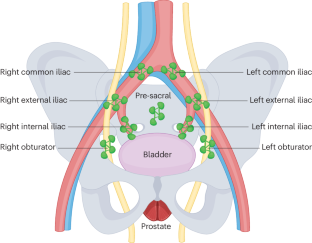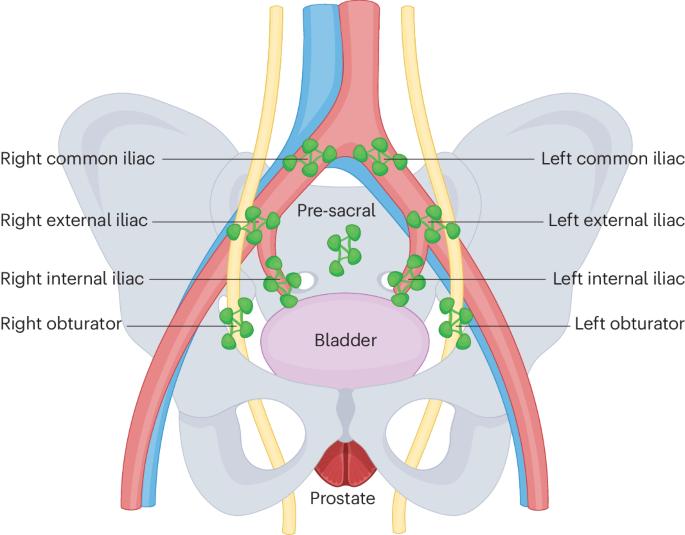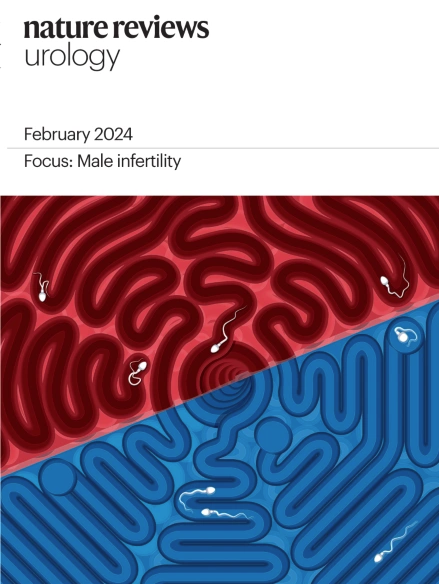From foes to friends: rethinking the role of lymph nodes in prostate cancer
IF 12.1
1区 医学
Q1 UROLOGY & NEPHROLOGY
引用次数: 0
Abstract
Clinically localized prostate cancer is often treated with radical prostatectomy combined with pelvic lymph node dissection. Data suggest that lymph node dissection does improve disease staging, but its therapeutic value has often been debated, with few studies showing that lymph node removal directly improves oncological outcomes; however, lymph nodes are an important first site of antigen recognition and immune system activation and the success of many currently used immunological therapies hinges on this dogma. Evidence, particularly in the preclinical setting, has demonstrated that the success of immune checkpoint inhibitors is dampened by the removal of tumour-draining lymph nodes. Thus, whether lymph nodes are truly ‘foes’ or whether they are actually ‘friends’ in oncological care is an important idea to discuss. Pelvic lymph node dissection is performed for staging and to prevent recurrence of prostate cancer; however, immune checkpoint inhibition could be affected by lymph node removal. Here, the authors discuss the possibility that lymph nodes could be ‘friends’ rather than ‘foes’ in prostate cancer treatment.


从敌人到朋友:重新思考淋巴结在前列腺癌中的作用
临床上,局部前列腺癌通常采用根治性前列腺切除术结合盆腔淋巴结清扫术进行治疗。数据表明,淋巴结清扫术确实能改善疾病分期,但其治疗价值却经常受到争议,很少有研究表明淋巴结切除能直接改善肿瘤预后;然而,淋巴结是抗原识别和免疫系统激活的重要第一站,目前使用的许多免疫疗法的成功都有赖于这一信条。有证据表明,尤其是临床前的证据表明,免疫检查点抑制剂的成功会受到切除肿瘤淋巴结的影响。因此,淋巴结在肿瘤治疗中究竟是 "敌人 "还是 "朋友 "是一个值得讨论的重要问题。
本文章由计算机程序翻译,如有差异,请以英文原文为准。
求助全文
约1分钟内获得全文
求助全文
来源期刊

Nature Reviews Urology
医学-泌尿学与肾脏学
CiteScore
12.50
自引率
2.60%
发文量
123
审稿时长
6-12 weeks
期刊介绍:
Nature Reviews Urology is part of the Nature Reviews portfolio of journals.Nature Reviews' basic, translational and clinical content is written by internationally renowned basic and clinical academics and researchers. This journal targeted readers in the biological and medical sciences, from the postgraduate level upwards, aiming to be accessible to professionals in any biological or medical discipline.
The journal features authoritative In-depth Reviews providing up-to-date information on topics within a field's history and development. Perspectives, News & Views articles, and the Research Highlights section offer topical discussions and opinions, filtering primary research from various medical journals.
Covering a wide range of subjects, including andrology, urologic oncology, and imaging, Nature Reviews provides valuable insights for practitioners, researchers, and academics within urology and related fields.
 求助内容:
求助内容: 应助结果提醒方式:
应助结果提醒方式:


